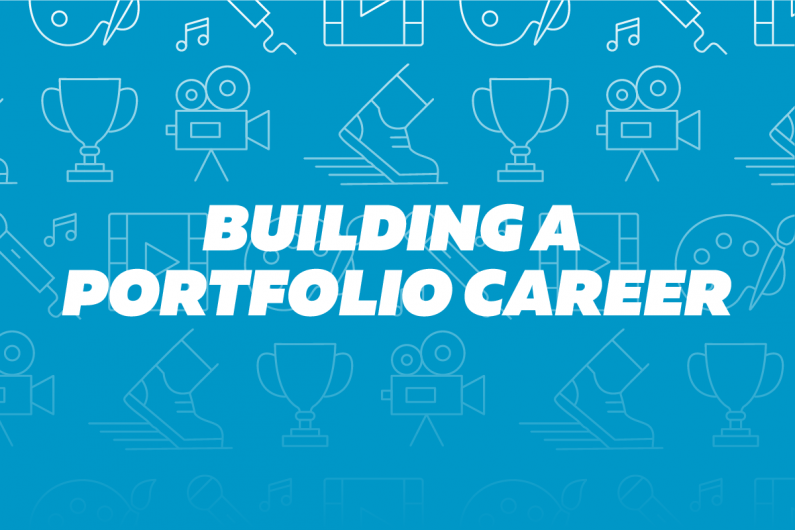Building a portfolio career

How you can combine your interests and personal skills into a portfolio career.
What's on this page?
Not your nine-to-five job
A portfolio career is ideal for people who want a creative career or those who need to fit work around raising children or caregiving, for example.
Instead of working a single full-time job, a portfolio career is about working at several paid activities at the same time. For example, someone who enjoys painting, writing and graphic design may make a living through each of these interests combined.
You can be fully independent (freelance, self-employed) or have a combination of self-employment and part-time jobs.
Personal skills key to success
To have a successful portfolio career you need personal skills such as:
- ability to manage a varied workload
- being responsible for your own work, time and energy
- being well organised
- being clear about what you can do and what you deserve to be paid
- confidence to network, push for jobs and promote your work
- ability to recover from setbacks quickly.
How to have a portfolio career - video
Bea Lee-Smith talks about what it's like to use her range of skills and interests in her portfolio career – 2.25 mins.
Bea: I decided a portfolio career because I had been teaching full time for three years, and wonderful as that was in many ways, it was all-consuming.
I had a huge number of things in my portfolio. I think at most I was juggling about 12 different things. For a couple of years I ran a performing arts school for children called Limelights. That was in both Khandallah and Eastbourne. I was teaching singing privately, I was teaching drama at a school called Hutt Theatre School and First Gear [theatre school] in town. I also worked part time hosting at City Gallery and Museum of Wellington and Colonial Cottage Museum. I ushered at theatre, I was performing, writing, singing, acting, dancing. I think that was everything. I had lots of different things going on.
I guess the thing I enjoyed most would have been the autonomy that it gave me in my life, not feeling tied to one job. I had a fair amount of flexibility in terms of what I could say yes and no to. It enabled me to use my creative skills and yeah it just gave me a feel of being able to dabble in a variety of different ways of working and expand on a variety of different skill sets.
The challenges would definitely have been having to be incredibly organised, live by the diary. No two weeks were ever the same. You do have to be very proactive, not afraid to approach people and say "this is what I do", give people your business card, kind of start to make those connections.
But it can also be extremely rewarding – you meet a huge variety of people from different walks of life.
I did it for six and a half years and it has led me to a point that I'm really happy with in my life now. With my dancing and my teaching I suffered a number of injuries and that led me to doing Pilates and working at the studio here. I eventually trained to teach Xtend Barre and have discovered that that's what I want to funnel all my energies into. But certainly, the skills that I gained during those portfolio years have led me to this point.
Advantages and challenges of portfolio careers
Advantages
- Flexibility – to plan your work around your life, and several interests at once.
- Achieve your creative potential – the chance to explore your creative potential and achieve your goals.
- Job security – several jobs safely protect you from redundancy, but you will need to think creatively to become self-sufficient.
Challenges
- Staying organised – dealing with deadlines and keeping your skills up to date for more than one job can be stressful.
- Dealing with uncertainty – dealing with income that may go up and down, and trying new things if something fails.
- Doing your own paperwork – working for different organisations on a contract or freelance basis means you need to pay your own taxes and other expenses.
How do I start my portfolio career?
To start your portfolio career:
- Get advice from others doing portfolio work so you understand the advantages and challenges.
- Consider keeping one regular job. For example, a part-time job, or a long-term freelance contract. Income from this job can help support you as you try out other work ideas.
Find out more
Updated 27 Jun 2023